Korean World Mission Conference Celebrates Milestone of 20,000 Korean Missionaries Worldwide
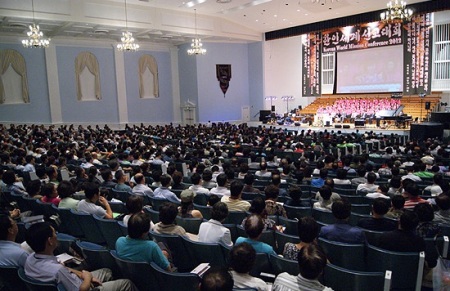
Prominent evangelical leaders in the U.S. joined famous Korean pastors at the Korean World Mission Conference, the largest gathering of Korean missionaries worldwide, in the Chicago area this week to celebrate a critical milestone in the world's fastest growing missionary movement. The number of Korean missionaries in 169 countries has exceeded 20,000 – more than doubling in 10 years. At this rate of growth, Korea is expected to surpass the United States as the top missionary-sending country in the world by the year 2020.
John Piper, preaching pastor of Bethlehem Baptist Church; Loren Cunningham, co-founder of Youth With a Mission; Doug Birdsall, executive chairman of the Lausanne Movement; and Lon Allison, executive director of Billy Graham Center were among the American evangelical leaders who spoke during the July 23-July 27 event held at Wheaton College's Billy Graham Center in Wheaton, Ill.
"There is a great calling by God for Korean churches," said Piper during the conference's opening service. "God has given great blessing to Korean churches all around the world. Where there is great blessing, great responsibility follows."
Over 5,000 people – half of them missionaries – participated in the 7th Korean World Mission Conference, which examined mission developments in the past and mission trends for the next 10 years. The missions conference, which has convened every four years at Wheaton College since 1988, was sponsored by the largest three Korean mission organizations – Korean World Mission Council for Christ, Korean World Mission Association, and Korean World Mission Fellowship.
The Korean missionary movement traces back to the late '70s but it began its rapid growth in 1990, when 1,000 Korean missionaries were dispatched overseas. Today, there are approximately 25,000 Korean missionaries around the world, indicating a 2,500 percent increase in Korean missionaries in the past two decades.
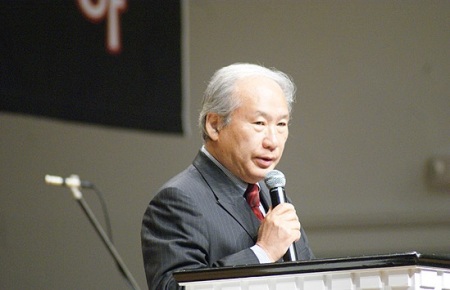
Power of Prayer
Prayer may be one of the factors that could explain the impressive growth in the Korean missionary movement.
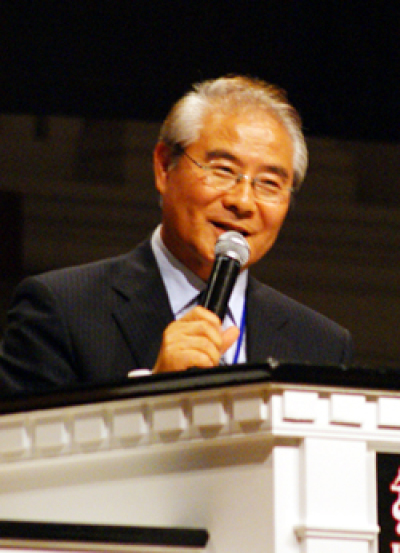
Seuk-Hee Goh, general secretary of Korean World Mission Council for Christ and one of the founding members of the Korean World Mission Conference, said he had "100,000 prayer warriors" who were praying for the opening service alone.
Seung-Sam Kang, president of the Korean World Mission Association, testified that the increase in the number of missionaries is an answer to prayers. When the Korean World Missions Conference was first held, there were only 500 Korean missionaries in the world.
"At that time, we prayed aloud for the dispatch of 10,000 missionaries by the year 2000," recalled Kang. "God listened."
Threat to Christian Missions
The greatest threat to global Christian missions today is the growth of Islam worldwide, according to Doug Birdsall. On July 24, he lectured about the five most important things that modern Christians should focus on, listing Islam at the top.
The greatest crisis is Islam, said Birdsall. He said Islam is prospering economically and expanding in missions with the goal to set up mosques around the world. He described Islam as a religion that does not confess Jesus as Lord.
"There are two religions that focus on missions: Christianity and Islam," said Birdsall. One is a religion that teaches to love enemies, and another is a religion without forgiveness, he said.
Secondly, Christians should also focus on pluralism which blurs the truth. Modern Christians also need to address the declining influence of Christians and churches, the need for missions targeting major cities, and youth mission.
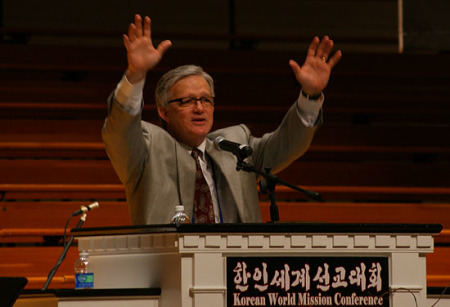
Doctrine of Selection
John Piper, a champion of Reformed theology, shed insight on the doctrine of selection during a July 24 lecture titled, "I have other sheep that are not of this sheep pen," based on John 10:7-18.
He had six observations:
1) Jesus calls himself shepherd (John 10:11, 14).
2) Some sheep belong to the Lord but others don't (John 10:3).
3) The sheep that belong to Jesus are entrusted to him by God, so they are the Lord's sheep (John 6:26).
4) Jesus knows them as his and he calls on their name who hear and follow (John 10:26).
5) Jesus not only calls his sheep but gives his life for them (John 10:11).
6) After he gives his life, he gives them eternal life.
Piper said the process of salvation described in John 10 is similar to that in Romans 8.
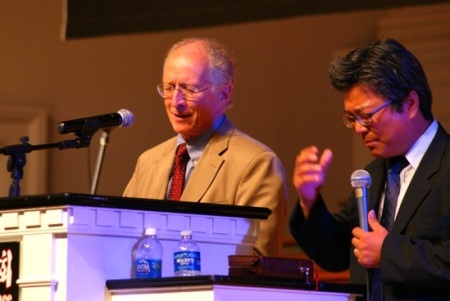
Jesus said people do not believe because they are not "his sheep" and because they do not "belong to the Lord," they do not believe in him, said Piper. But many people misunderstand that they do not belong to the Lord because they do not believe in him, he said.
Piper went on to explain how people distorted the "doctrine of selection." He said this happened especially a lot during the time of William Carey, the first overseas missionary to India. When Carey passionately declared "I will go," many people had told him, "If God chose them, He can save them without your help."
Piper concluded that to lead the sheep who are not in the pen, it is necessary to let them hear the "voice of the Lord." He reminded the Korean missionaries that the sheep they encounter belong to God and urged them not to forget that when they proclaim His word that the sheep listen to the Lord's voice.
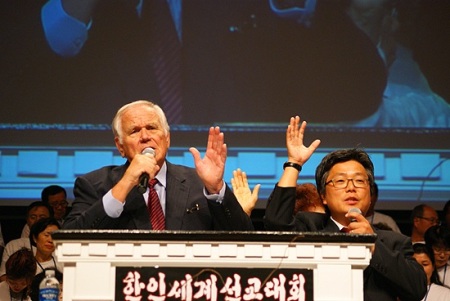
Bibles to North Korea
In a message titled "Send Me," Loren Cunningham of YWAM urged the South Korean Christians to start sending Bibles to North Korea rather than waiting until it is opened.
Without Bibles in North Korea, he said, there will be no teaching of ethics and morals once the communist country becomes open. When the country opens, Cunningham predicts that so many young women will degenerate to be prostitutes, many young men will join the mafia to make money, and mammonism will be rampant.
That's why Bibles are needed in North Korea, he said.
Cunningham highlighted that God has prepared the Korean churches for this kind of time. He pointed out that there is a reason why South Koreans lead the world in Internet and telecommunications: God is preparing them to quickly enter into North Korea to deliver the Gospel.
He again stressed that South Korean Christians should not wait until North Korea becomes open but "prepare" and "pray" for unification.
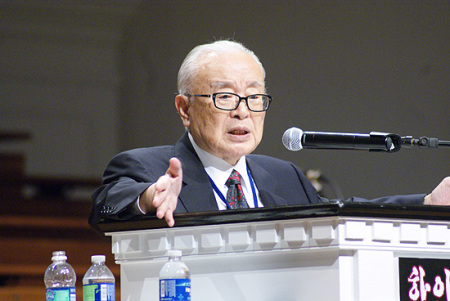
Recovering Apostolic DNA
Dr. Dong-Jin Cho, executive director of the Dong-Jin Cho Missiology Research Center, delivered a lecture titled "Recover Apostolic DNA."
Cho, who is one of the most respected missiologists in Korea, emphasized that the Korean churches need to inherit the "apostolic DNA" of the early Korean churches and the early apostles.
"The Korean church started with apostolic DNA and they were like the apostles of the early church. The missionaries did not receive mission funding from churches," he said.
Cho noted that the early Korean church was able to be the root of the great revival because of the apostolic DNA, which can also found in the historical background of the 1912 China Sandong mission.
He emphasized that the Korean church needs to continue the tradition of apostolic DNA or face the same fate as the church in the U.K.
"The United Kingdom, formerly the center of world mission, has closed the doors of churches."
Cho said many pastors from Europe came to the 100th anniversary of the World Missionary Conference at Edinburgh in May asking for prayers.
"Seeing how Europe changed from 1910, we should pray that Korean churches do not change like Europe 100 years later," warned Cho. "We must abandon arrogance and rely only on God."
KWMC 2016
This year's Korean World Mission Conference was divided into different themes each day: Celebration, The Cross, Conviction, Commitment, Commission. The event was held in conjunction with the Global Korean Young Adult Mission Festival.
Mission experts and scholars also led seminars on a variety of topics including missions strategy, unreached people groups, business as mission, testimonials from the field, and the church's role in mobilizing missionaries.
At the last KMWC conference in 2008, Korean leaders presented the "2008 Wheaton Manifesto," in honor of the world-renowned evangelist the Rev. Dr. Billy Graham and Wheaton College for their support in the founding of the conference.
The next KWMC conference is scheduled for 2016.





















